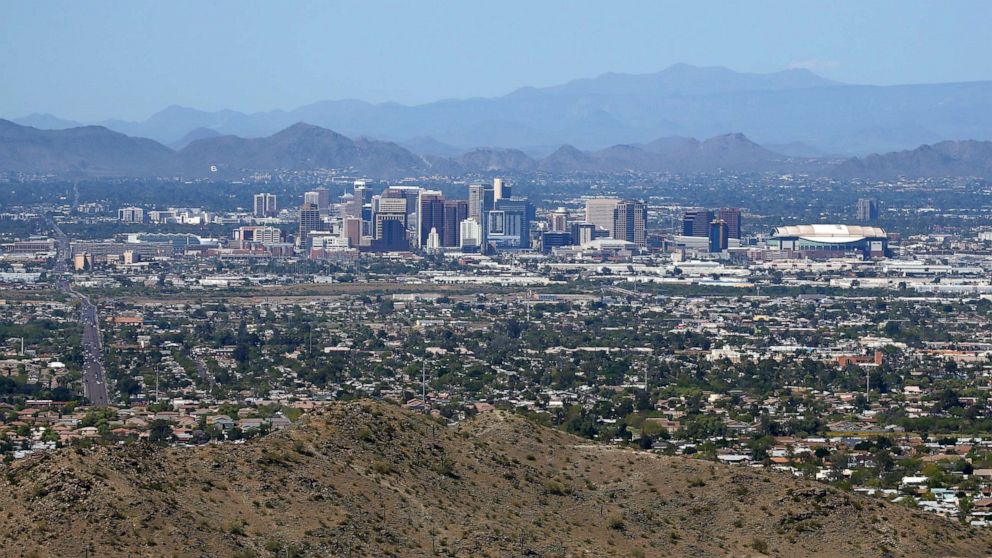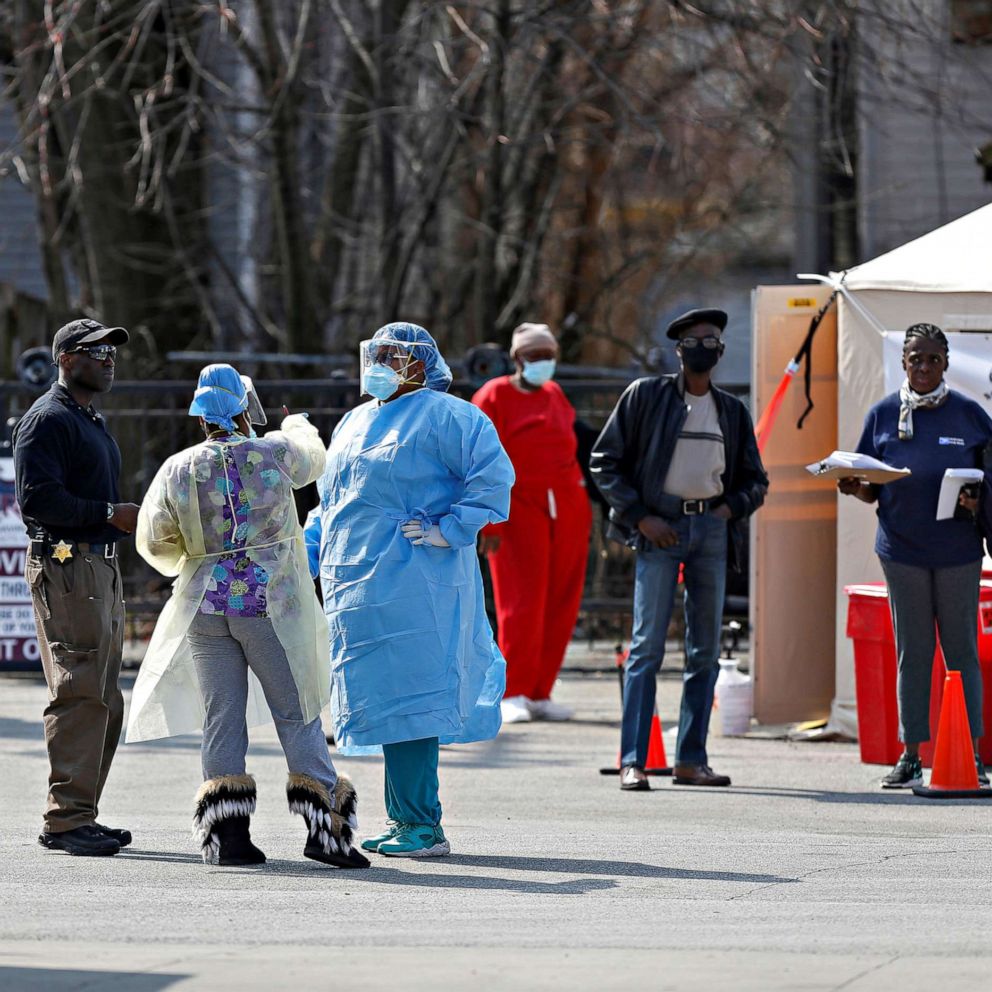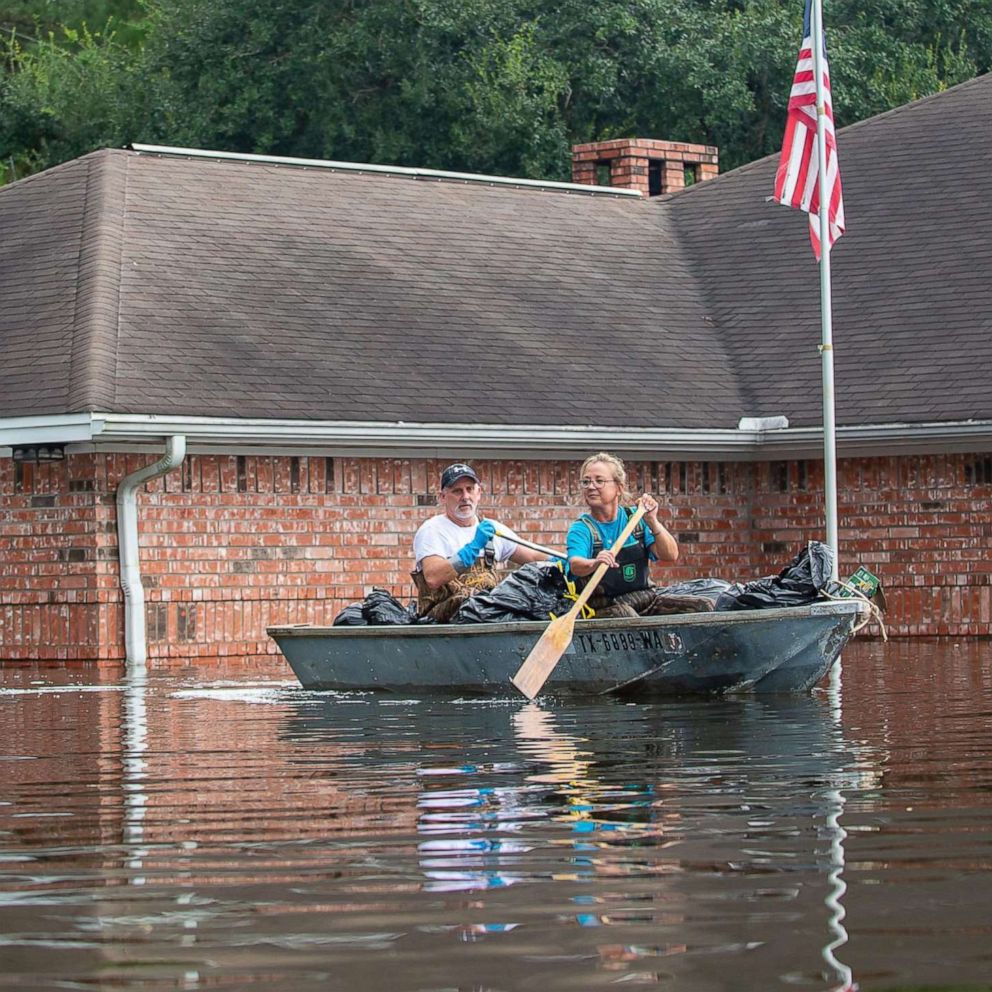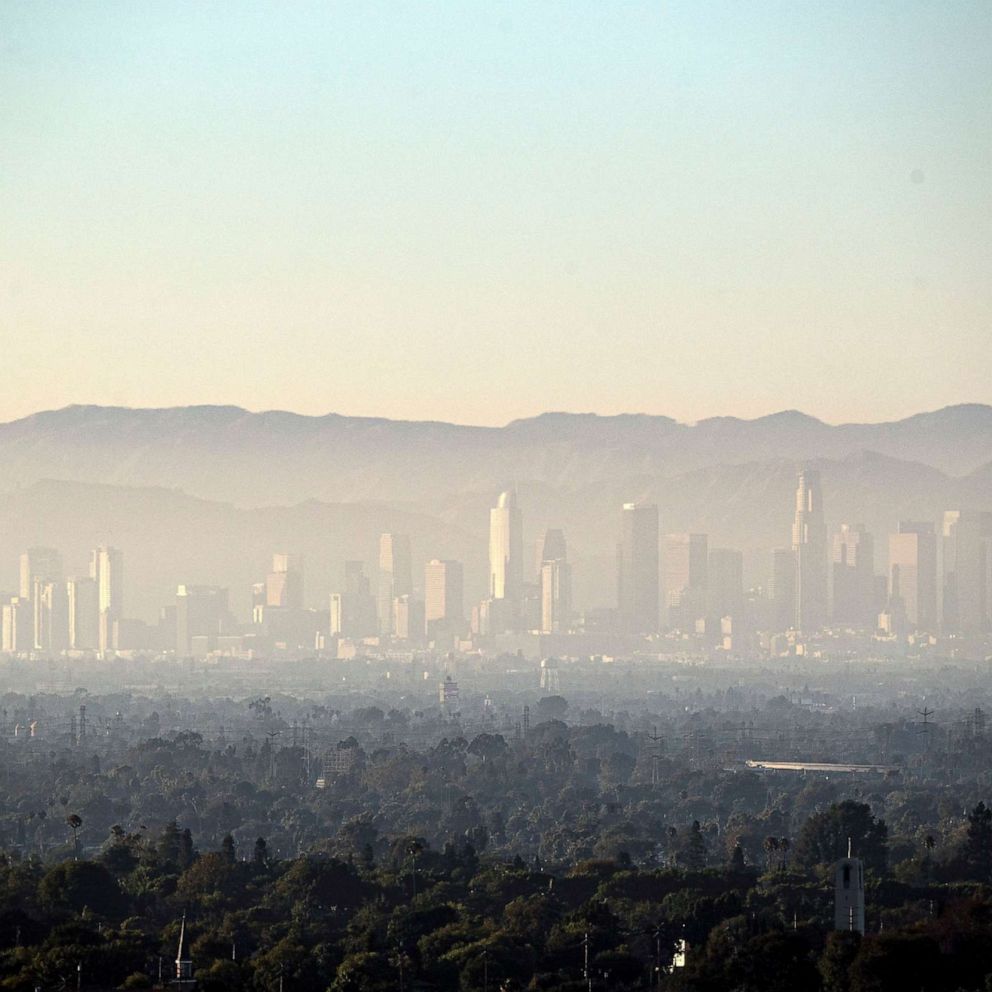Does air pollution increase risk from COVID-19? Here's what we know
A newly released study from researchers at Harvard University has brought more attention to the impact pollution in the air can have on patients who contract the novel coronavirus
The study connected exposure to high levels of air pollution to higher rates of death from COVID-19, raising concerns for the millions of Americans living in cities that see increased rates of pollution, made up of tiny particles that often come from high levels of traffic and industrial facilities. While the data on the novel coronavirus is still preliminary, scientists are confident that long-term exposure to air pollution contributes to health conditions like asthma or cardiovascular disease.
An estimated 141 million Americans live in counties with at least one bad rating for air quality, according to the American Lung Associations' "State of the Air" report.
Tune into ABC at 1 p.m. ET and ABC News Live at 4 p.m. ET every weekday for special coverage of the novel coronavirus with the full ABC News team, including the latest news, context and analysis.
Here are some things to know about how air pollution could play a role in the pandemic.
What does the study say?
According to a nationwide study from Harvard T.H. Chan School of Public Health, people with COVID-19 who live in areas with high air pollution levels are more likely to die than those who live in less polluted regions.
The study looked at 3,080 different counties and looked at the levels of fine particulate air pollution -- specifically tiny particles called "particulate matter" -- which is generated by fuel combustion from cars, refineries and power plants -- and compared it to the risk of death from the coronavirus in the U.S.
They found that a small increase -- one microgram per cubic meter -- in long-term exposure to particulate matter leads to a 15% increase in the COVID-19 death rate.
The study's senior author predicted that counties with higher pollution levels "will be the ones that have higher numbers of hospitalizations, higher numbers of deaths and where many of the resources should be concentrated," in The New York Times.
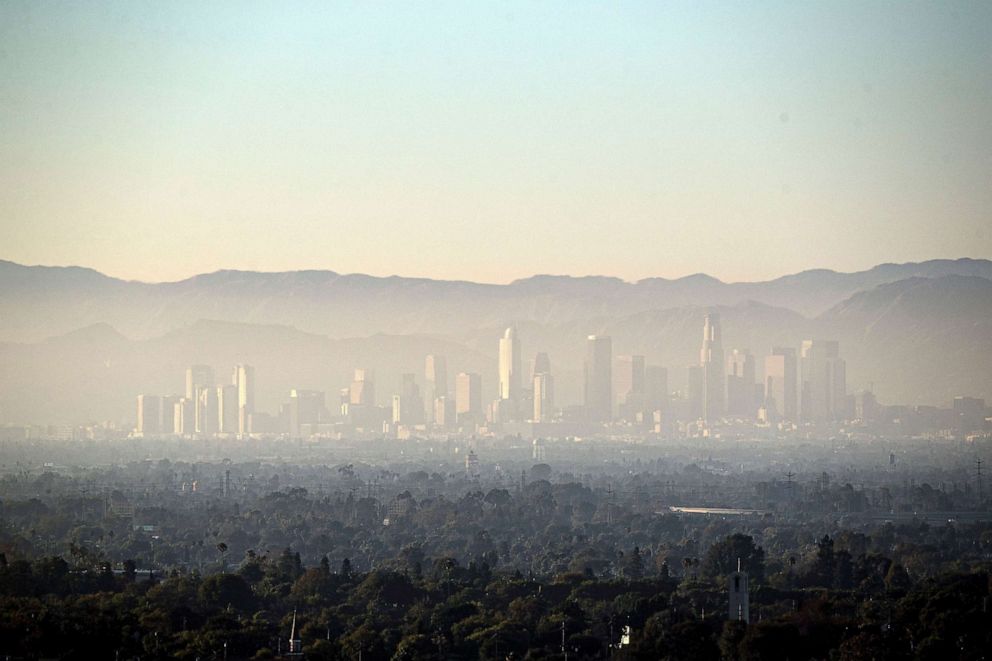
Does this mean you are more likely to die from COVID-19 if you live in a place with high air pollution levels?
Not exactly. This study is preliminary and we're still missing a lot of data on COVID-19, but the connection between air pollution and respiratory and cardiovascular health problems is well established.
"The nation has known for some time that long-term exposure to particle pollution can worsen symptoms of lung disease, increase susceptibility to lung infection, trigger heart attack and stroke, and can even cause lung cancer and premature death. This new research from Harvard now links particle pollution exposure to a dramatically higher death rate from COVID-19," Harold Wimmer, president of the American Lung Association said in a statement.
Trish Koman, a public health researcher at the University of Michigan, said it's more accurate to say there's a relationship between increasing air pollution and an increasingly worse effect from the virus.
"There's a causal connection between particulate matter and premature mortality from cardiovascular disease, and respiratory causes so we already know that air pollution can cause populations to be more vulnerable and susceptible to a variety of respiratory and cardiovascular ailments," said Koman, a former project manager in EPA's Office of Transportation and Air Quality.
"There's a strong connection between air pollution, and a weaker cardiovascular and respiratory health in general. We also know in the United States that communities of color and low wealth communities are more likely to have historic exposures to higher levels of pollution."
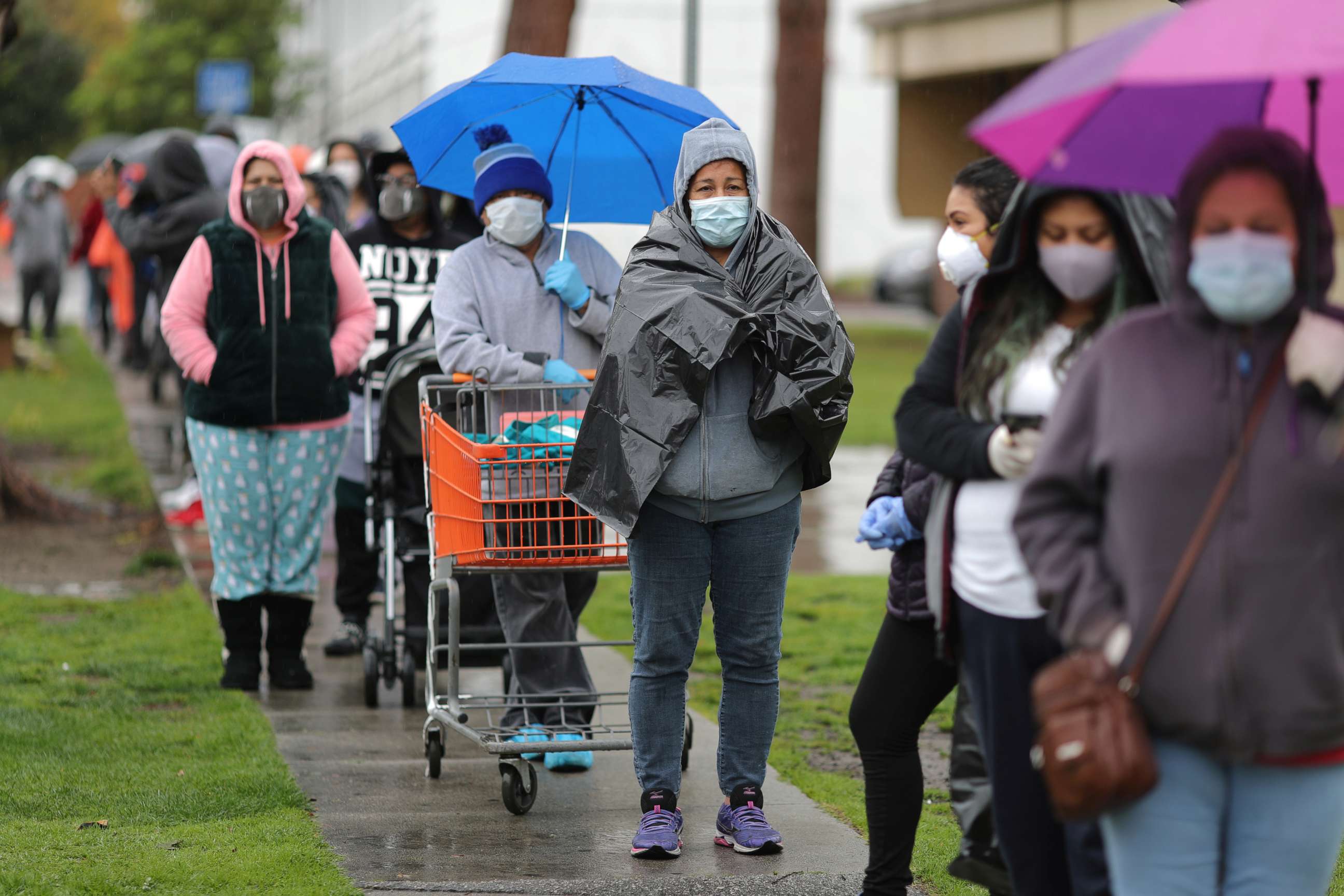
Who is most likely to be impacted by this added risk from COVID-19?
The Harvard study shows that people who live in larger cities or areas with more air pollution could face higher risks of more severe illness from COVID-19. Over the years, research and public data have shown that in those areas, communities of color and low income communities are exposed to more air pollution than the general population.
Mustafa Santiago Ali, a former EPA official who helped create the agency's environmental justice office and vice president of environmental justice at the National Wildlife Federation, said he talks about "sacrifice zones" around the country where communities of color, low wealth, and indigenous peoples are exposed to higher levels of pollution that contribute to chronic health problems that make people more susceptible to COVID-19.
"We call them sacrifice zones because they're the areas that you know there's been disinvestments, they're in the areas that there's been lack of enforcement in, they're in areas that we will often zone industrial even though homes sometimes are literally right at the fence line. So that's some of the reasons that we call them sacrifice zones along with lack of access to medical care," he told ABC News.
"Truly, one of the main factors on the underneath of it -- unfortunately -- is systemic racism and discrimination. And the reason I say discrimination is because when we talk about systemic racism we're talking about, you know, black and brown people and indigenous people, and in some instances, Asian or Asian Pacific Islanders. I say discrimination because it also impacts low income wealth communities," Ali said.
Why should we pay attention to the connection between air pollution and COVID-19?
Heather McTeer Toney, a former EPA regional administrator and national field director for Mom's Clean Air Force, said it's important to make communities aware of the additional risk from COVID-19 if their community is also exposed to pollution.
"If you have someone who's living right under a cloud of a constant stream of air pollution who's already suffering from things like asthma or other respiratory ailments or heart disease, already dealing with a weakened lung and respiratory system such that sheltering in place for them, because that much more dangerous, and they have to be aware of additional precautions they may need to take," she said.
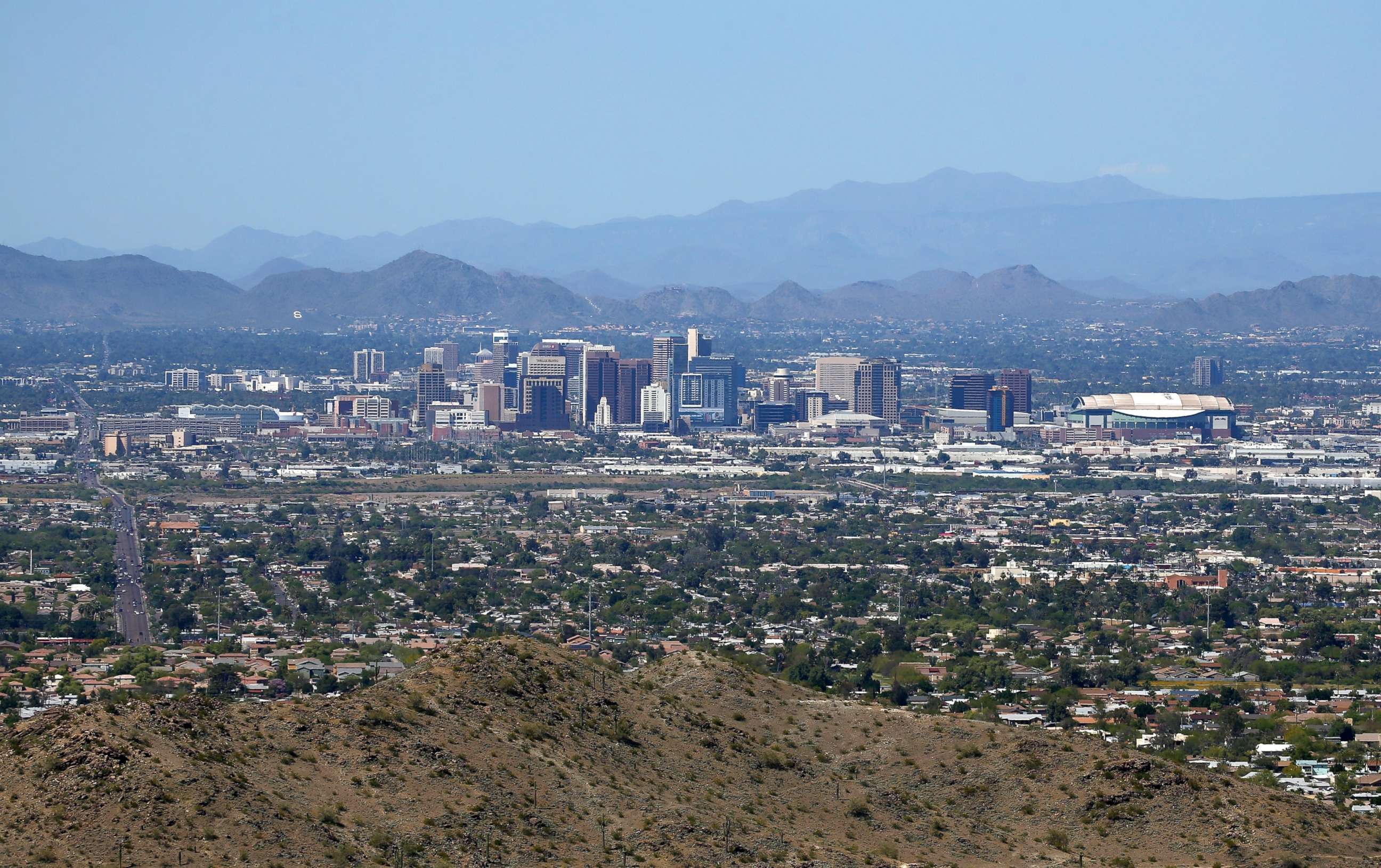
"People are experiencing it in real-time and so we're seeing data like this study from Harvard, that is really confirming some of the things that we know from being on the ground. And I think we can say that EPA, even in the midst of COVID, right, and even in the middle of this -- this pandemic is continuing to push deregulation and continuing to sort of operate business as usual, to do things that inhibit the wellness of the American public. And creating worsening air pollution is something that we just can't deal with right now."
ABC News' Delaram Taghipour contributed to this report.
What to know about coronavirus:
- How it started and how to protect yourself: coronavirus explained
- What to do if you have symptoms: coronavirus symptoms
- Tracking the spread in the US and Worldwide: coronavirus map
